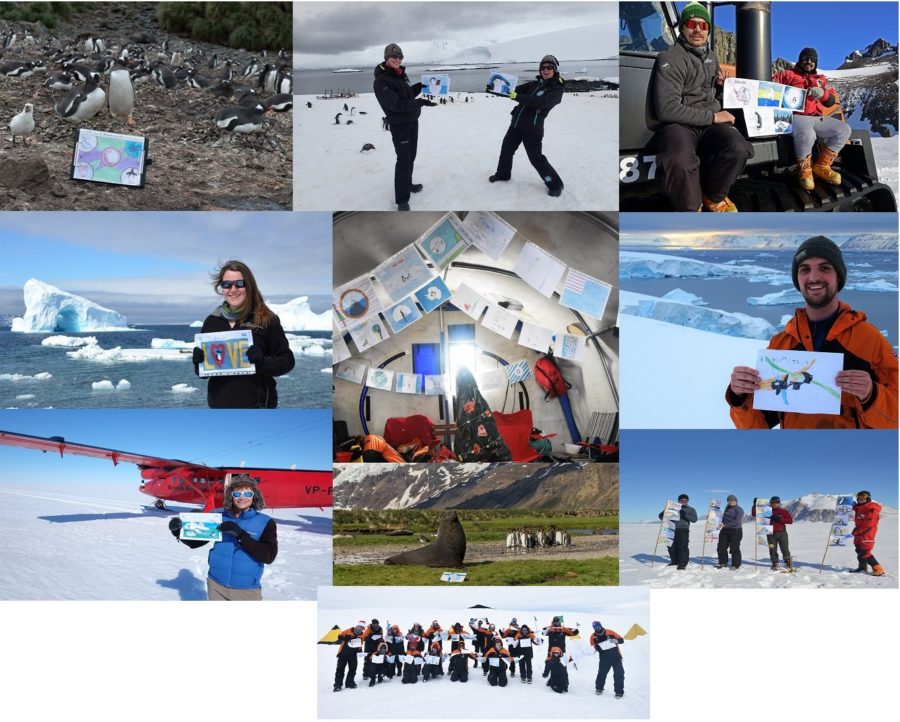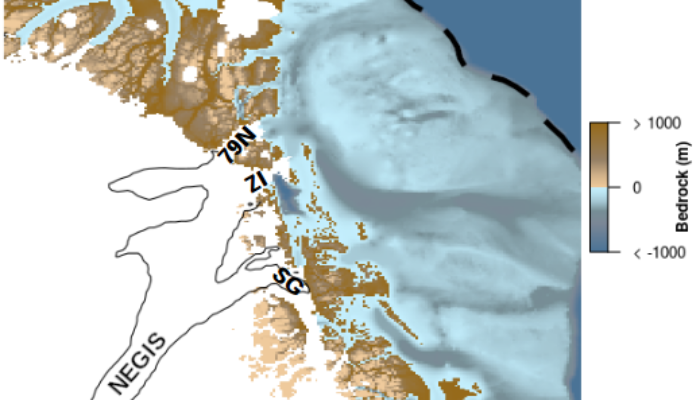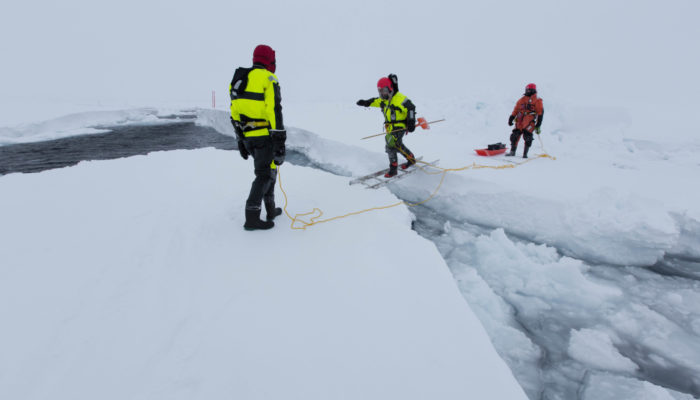Ice shelves (the floating parts of the Antarctic ice sheet) play a fundamental role in the stability of the Antarctic ice sheet (see this post) and, therefore, its contribution to global sea-level rise. They lose mass primarily through melting at their bases, which are in contact with the ocean. This thins them and makes them more vulnerable, reducing their stabilising potential and causing more i ...[Read More]
Did you know about… nature’s street lights for Santa Claus?
Only a couple of days left until Santa Claus’ big night! Once again the beardy guy in the red and white suit will fly around the world with his sledge pulled by his strong reindeers to make young and old children happy! But how does he navigate in the dark? Luckily, nature provides some solutions, for example light pillars… Light pillars form when ice particles are suspended in the air. These part ...[Read More]
Did you know…? Antarctica Day 2019 – 60 years of peace

December 1st 2019 marks the 60th anniversary of the signing of the Antarctic treaty. To celebrate the signing of the treaty, ‘Antarctica Day’ now occurs each year on December 1st. But what is the Antarctic Treaty? How do people celebrate? This week’s blog post will tell you everything you need to know, just in time for celebrations! Antarctic Treaty The Antarctic Treaty was originally signed by 12 ...[Read More]
Did you know… about the fluctuating past of north-east Greenland?

Recent geological data shows that during a very cold phase of our Earth’s climate (between 40,000 and 26,000 years ago), there was a huge expansion of polar ice sheets, yet the north-eastern part of the Greenland ice sheet was less extensive than today. How could this have occurred? In this post we shed light on the potential causes of this ice sheet behaviour. What do we know about present- ...[Read More]
Did you know? – Proglacial lakes accelerate glacier retreat!
In a global context, New Zealand’s small mountain glaciers often get overlooked and yet they are a beautiful part of New Zealand’s landscape. They are the water towers for the South Island and an essential part of its tourism, thanks to a few undeniable heroes (Frans Josef and Fox Glaciers), but sadly, they may not be as prominent in the future. In this post we review the state of modern glaciatio ...[Read More]
Did you know? – Storms can make Arctic sea ice disappear even faster

The increase in air and water temperature due to climate change drives the retreat in the Arctic sea-ice cover. During summer, when sunlight reaches the Arctic, the absorption of heat by the dark ocean water enhances the sea-ice melt through the ice-albedo feedback. During winter, when sunlight does not reach the Arctic, another feedback is at work, as storms enhance the energy transfer between ai ...[Read More]
